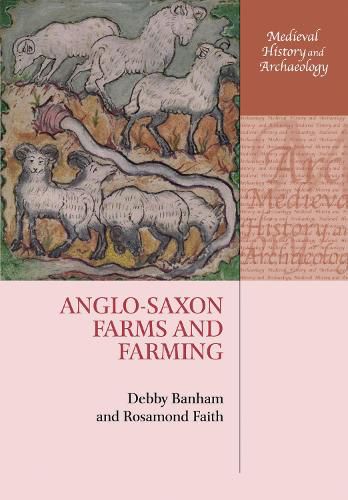Readings Newsletter
Become a Readings Member to make your shopping experience even easier.
Sign in or sign up for free!
You’re not far away from qualifying for FREE standard shipping within Australia
You’ve qualified for FREE standard shipping within Australia
The cart is loading…






Anglo-Saxon farming made England so wealthy by the eleventh century that it attracted two full-scale invasions. In Anglo-Saxon Farms and Farming, Debby Banham and Rosamond Faith explore how Anglo-Saxon farmers produced the food and other crops and animal products that sustained England’s economy, society, and culture before the Norman Conquest.The volume is made up of two complementary sections: the first examines written and pictorial sources, archaeological evidence, place-names, and the history of the English language to discover what kind of crops and livestock people raised, and what tools and techniques they used in producing them. The second part assembles a series of local landscape studies to explore how these techniques were combined into working agricultural regimes in different environments. These perspectives allow the authors to take new approaches to the chronology and development of open-field farming, to the changing relationship between livestock husbandry and arable cultivation, and to the values and social relationships which under-pinned rural life. The elite are not ignored, but peasant famers are represented as agents, making decisions about the way they managed their resources and working lives.A picture emerges of an agriculture that changed from an essentially prehistoric state in the sub-Roman period to what was, by the time of the Conquest, recognizably the beginning of a tradition that only ended in the modern period. Anglo-Saxon farming was not only sustainable, but infinitely adaptable to different soils and geology, and to a climate changing as unpredictably as it is today.
$9.00 standard shipping within Australia
FREE standard shipping within Australia for orders over $100.00
Express & International shipping calculated at checkout
Anglo-Saxon farming made England so wealthy by the eleventh century that it attracted two full-scale invasions. In Anglo-Saxon Farms and Farming, Debby Banham and Rosamond Faith explore how Anglo-Saxon farmers produced the food and other crops and animal products that sustained England’s economy, society, and culture before the Norman Conquest.The volume is made up of two complementary sections: the first examines written and pictorial sources, archaeological evidence, place-names, and the history of the English language to discover what kind of crops and livestock people raised, and what tools and techniques they used in producing them. The second part assembles a series of local landscape studies to explore how these techniques were combined into working agricultural regimes in different environments. These perspectives allow the authors to take new approaches to the chronology and development of open-field farming, to the changing relationship between livestock husbandry and arable cultivation, and to the values and social relationships which under-pinned rural life. The elite are not ignored, but peasant famers are represented as agents, making decisions about the way they managed their resources and working lives.A picture emerges of an agriculture that changed from an essentially prehistoric state in the sub-Roman period to what was, by the time of the Conquest, recognizably the beginning of a tradition that only ended in the modern period. Anglo-Saxon farming was not only sustainable, but infinitely adaptable to different soils and geology, and to a climate changing as unpredictably as it is today.